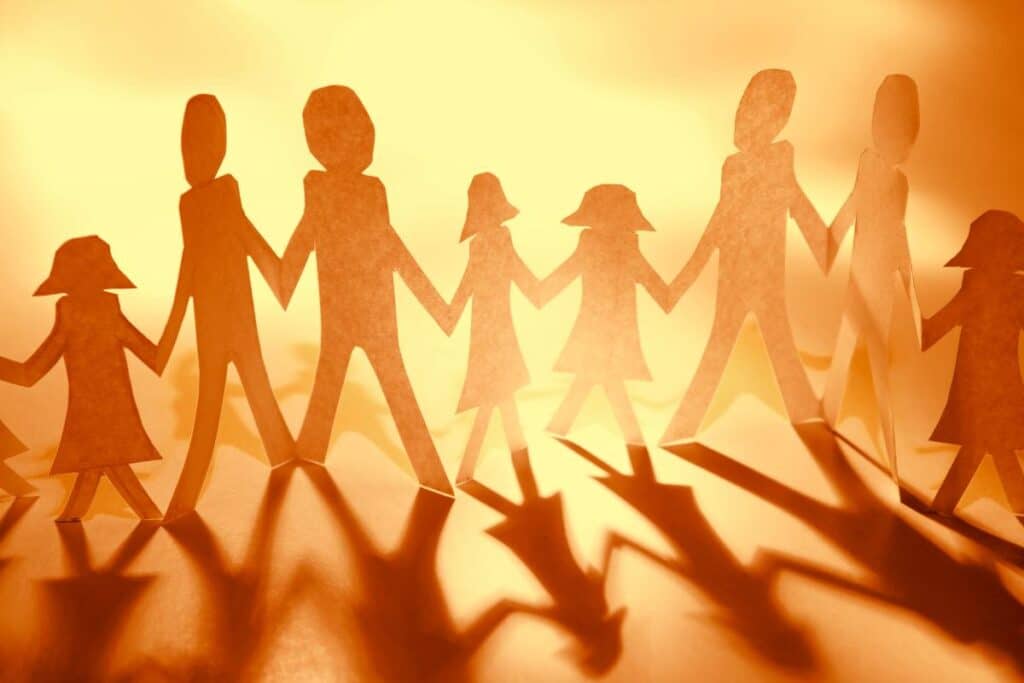In healthy relationships, partners comfortably and confidently rely on each other for help, understanding, and support. The relationship brings something positive to both people’s lives. Interdependency is a good thing. After all, everyone occasionally needs help from someone else.
But when you are close to someone struggling with a substance use disorder (SUD)—alcoholism, illegal drug use, or the abuse of prescription medications—it is far too easy to become trapped within a dysfunctional and desperate downward spiral. Of course, you want to care for and protect your addicted loved one—it’s only natural. When you are so responsible for a person that you lose yourself, you have developed a codependency. Call 888.296.8976 to speak with someone from our knowledgeable team at Northpoint Recovery about codependency in families, breaking codependency, and our offered help with codependency in Idaho.
How Codependency Affects You
Codependent people allow their wants, needs, and responsibilities to become secondary to those they’re trying to help, such as someone struggling with addiction. It is accurate to say that they “need to be needed” because a codependent’s identity is primarily defined by all they do for their addicted loved one. This is particularly true in relationships impacted by addiction.
The non-drug-using or non-drinking partner frequently becomes the “caretaker” of the person struggling, whether they like it or not. This warped dynamic causes the codependent to suffer just as much as those struggling with addiction. The other areas of their life are significantly and negatively impacted because they focus all their time, attention, energy, and resources on the person struggling with an SUD. Eventually, codependents resent all the one-sided “sacrifices” they make for their “unappreciative” substance-abusing loved one.
In other words, the sober person becomes just as sick as those struggling with an SUD. Their life spirals out of control as they allow the other person’s addiction to control them.
Signs of a Codependent Relationship
What is the difference between a caring and supportive interdependent relationship and a codependent one? Here is a short test you can give yourself that lists some of the warning signs of codependency. Do you:
- Have low self-esteem?
- Have a problem accepting compliments?
- Have difficulty expressing your feelings or thoughts?
- Think you are unlovable?
- Find it hard to say “no”?
- Feel shame or embarrassment because of your loved one’s addiction?
- Ignore your own needs to take care of your partner?
- Take responsibility for other people’s feelings?
- Blame your partner for your sadness, anxiety, or frustration?
- Find it hard to establish personal boundaries?
- Think it’s your responsibility to “fix” your partner?
- Obsessively worry about what your partner doing?
- Feel angry, anxious, or depressed?
- Worry about being “abandoned”?
- Feel trapped in your situation?
The more questions you answered “yes” to, the more likely it is that you are codependent.
What to Do When Loving Someone Struggling with Addiction
Don’t let yourself be burdened by shame and guilt. About 24 million Americans struggle with substance abuse, so you are not alone. When you finally realize that addiction is a disease that can be managed with proper professional treatment, the better off you will be. You can’t cure their disease. Here are other helpful things you can do:
- Remember that addiction is a medically-recognized disorder of the brain
- Read books, attend 12-step meetings, and talk to addiction professionals
- Set boundaries
- Take a break every day—meditate, pray, or read inspirational or positive literature while you step away from any problems
- Join a peer support group
Even if your physical and mental well-being requires you to separate from the other person, try to offer moral support and understanding, especially if they sincerely try to recover.
Break Codependency and Find Addiction Treatment in Idaho at Northpoint Recovery
Codependency can be likened to an addiction to an addict. Your recovery from such a turbulent emotional situation will take time. Whether or not your addicted loved one chooses to get help for their disease, you can still heal. Contact Northpoint Recovery today at 888.296.8976 to learn more about addiction and codependency in families and how we can help.

